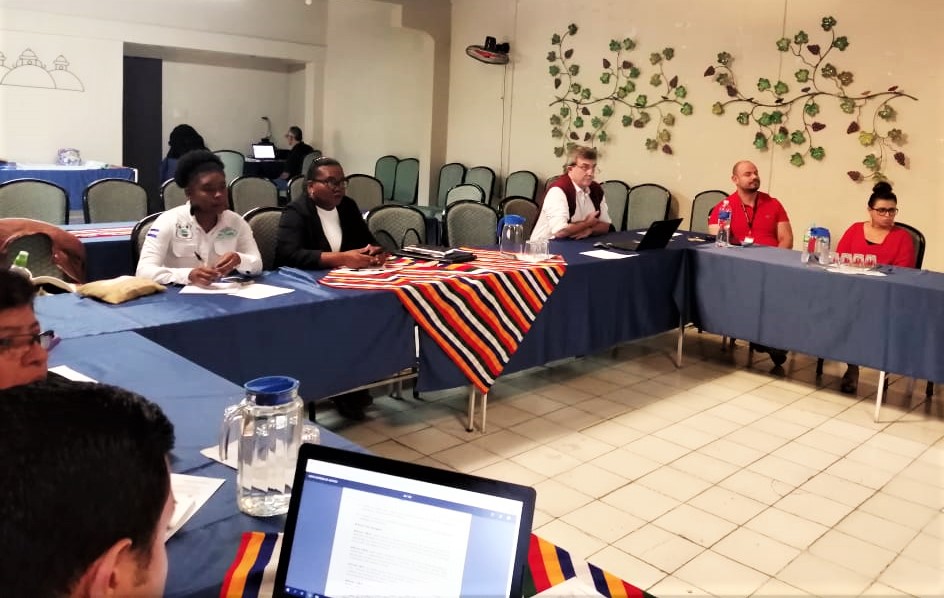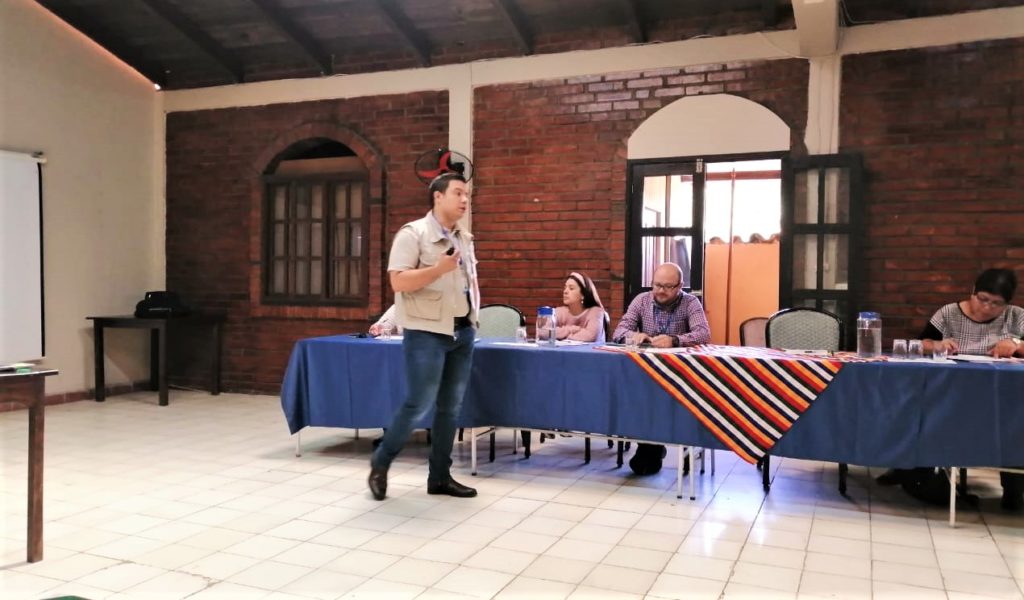
Last month, some IBCR headquarters members flew to Honduras to join our satellite office team for a few days in the field. The purpose of this mission was to facilitate a workshop in collaboration with the Inter-Institutional Commission to Combat Commercial Sexual Exploitation and Trafficking in Persons (CICESCT) as part of the project against trafficking and exploitation of persons, in particular women and girls, funded by World Affairs Canada and implemented by the IBCR since spring 2019.
This workshop, held from 21 to 25 October 2019, brought together 30 professionals from various Honduran institutions in Tela (Atlántida) to discuss the key elements for the upcoming efforts to strengthen local actors against human trafficking in Honduras.
The outcome of these meetings was very positive, as they made it possible to reach a consensus on how to implement actions to prevent and protect victims of trafficking through local organisations and institutions, as well as on the skills to be developed or strengthened in this area.
The workshop also provided a platform for the Office to sign, in the presence of the Executive Secretary of CICESCT, the Blue Heart Pact, a global campaign to raise awareness, commitment and social responsibility against human trafficking.


In parallel, the IBCR conducted a training session for the Steering Committee, the main governance body of the project whose mandate is to ensure the achievement of the objectives by participating in the decision-making process, collaborating and/or making recommendations. The Committee is composed of 7 civil society members and represents the most vulnerable groups (women, girls, people of African descent and indigenous peoples).
The purpose of this two-day training was to enhance the understanding of and provide tools to the committee members on the complex and sensitive issues related to human trafficking. The initiative is in line with the overall objective of the project, which is to strengthen the ability and influence of Honduran civil society to prevent and combat trafficking in persons, especially women and girls, through better identification of trafficking-related threats and the implementation of effective and timely warning mechanisms.







